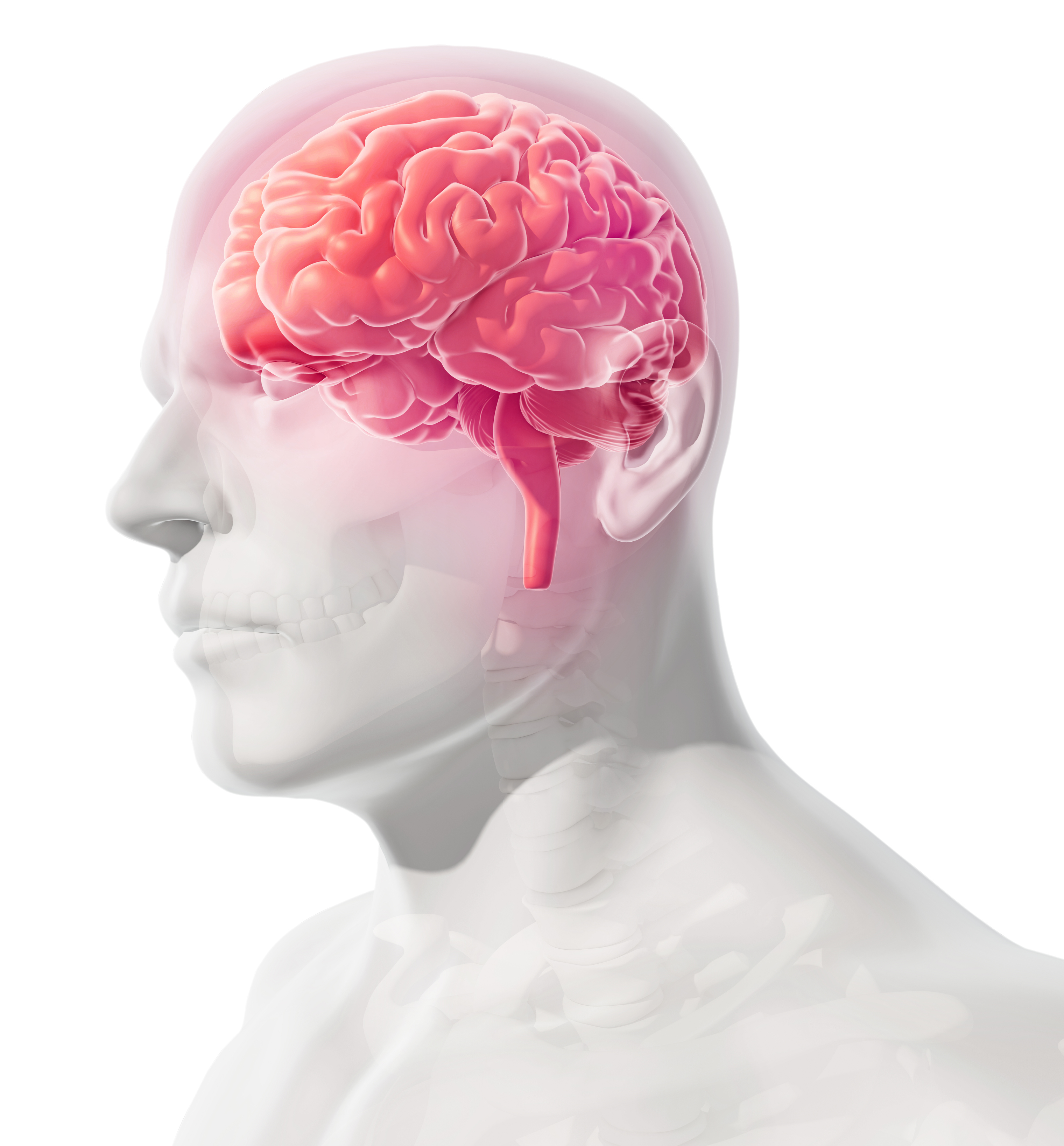
Do We Officially Know What Causes Dementia?
Being diagnosed with a progressive condition — or watching a parent neurologically deteriorate, is something that millions experience on a daily basis. It’s a challenging realization, leaving so many confused and frightened. For those who have directly been affected by dementia, the most common question asked is — why?
-
Why did my mom or dad have to develop dementia?
-
Why is my brain deteriorating?
-
Why is there not yet a cure?
These are all valid questions, which all relate back to the ’cause’ of one’s symptoms.
Before we dive into what may be causing symptoms of dementia to develop, it’s critical that we define dementia. Being a condition that results in general cognitive and mental decline, symptoms become severe enough that they begin to interfere with everyday life.
Although many often think of Alzheimer’s, which is most certainly a form of dementia — dementia itself is actually an umbrella term, describing a wide range of diseases and conditions which fall into this category. So, back to the question on so many minds — what causes dementia?
The Causes of Dementia
There’s no two ways about it — dementia is a highly complex condition and in terms of a singular cause, well, there isn’t one. Dementia can be caused by a long list of contributing factors, some which are actually treatable — these cases include, but are not limited to:
-
A tumor
-
An infection, such as meningitis
-
A brain injury
-
Nutritional deficiencies
-
Drug abuse
-
Metabolic and/or hormone disorders
Although this is the case for a select portion of those affected by symptoms of dementia, unfortunately, the majority of disorders related to dementia are progressive in nature, irreversible, and degenerative. Meaning, over time, symptoms will steadily get worse, experiencing a gradual decline of functioning.
In these cases, there are also numerous possible causes, but the two most common are:
- Alzheimer’s disease — representing 60 to 80 percent of those living with dementia, this disease has been heavily researched, in the hopes of finding a cure. At this point, the exact cause is not fully understood. Hallmark plaques and tangles are found within the brain of Alzheimer’s patients, which is a key area of interest among researchers. Of course, age is the one of the greatest risk factors — but at this point, scientists believe Alzheimer’s is likely caused by a combination of lifestyle, environmental, and genetic factors.
- Vascular dementia — occurring after a stroke, this form of dementia develops when blood flow to the brain is reduced, depriving brain cells of key nutrients and oxygen. Like Alzheimer’s, age is certainly a significant risk factor, along with factors that increase one’s risk of a heart attack of stroke — poorly balanced blood sugar, hypertension, smoking, poor diet, high cholesterol, etc.
Before we jump into key lifestyle factors, let’s first address the role of genetics. Although both early – and late-onset Alzheimer’s are believed to have a genetic component, the role of one’s genes differ based on when their condition develops. For example:
- Early-onset — affecting those who are typically in their 30s to mid-60s, early-onset affects less than 10 percent of the Alzheimer’s population. Once again, there is not yet a ‘black and white’ answer to this disease, as research shows that familial Alzheimer’s is typically caused by an inherited change among one of three key genes — as single-gene mutations take place on one of three chromosomes, including chromosome 21, 14, and 1. Early-onset has allowed researchers to observe one’s brain long before symptoms begin to arise, allowing them to gain
- Late-onset — in comparison, the majority of patients will suffer from late-onset, which generally becomes apparent in their mid-60s or later. At this time, researchers have not uncovered a specific gene which causes Alzheimer’s, however, genetic risk factors have been studied. When an individual has one form of the APOE gene on chromosome 19, it appears that they are at an increased risk. More specifically, it’s APOE ε4 that has been linked to Alzheimer’s, and the more of these alleles one has, the greater their risk. A person will have zero, one, or two APOE ε4 alleles. At this time, based on the human genome, there are over 30 regions of interest.
Everyday Lifestyle Factors That May Influence Dementia Onset

Sources: Pexels
Perhaps the most challenging issue surrounding a cure, is that there are so many possible contributing factors. Over the past few years, research has continued to pile regarding the lifestyle choices we make in relation to our neural health and overall well-being.
Within the past two years, the following studies have been published, focusing on some of the possible contributing factors that are leading to increased rates of dementia.
Artificially Sweetened Beverages
In April, 2017, a key study was published in Stroke, showcasing the link between a high intake of sugar/artificially-sweetened beverages and one’s risk of a stroke or dementia. After studying over 4300 participants, it was found that higher recent and higher cumulative intake of artificially sweetened drinks was linked to a greater risk of all-cause dementia and stroke — whereas sugar-sweetened beverages were not associated with either dementia or stroke.
When looking at the stats, between 2009-2010, on any given day, approximately 20 percent of the American population aged 2 years and older consumed diet beverages. Aspartame, for instance, is said to cross the blood-brain barrier, where it attacks brain cells, based on excitotoxicity. Used in more than 6,000 products, long-term consumption has been linked to imbalances in the brain and mild vascular congestion.
Antidepressants and Other Prescription Medications
Currently, antidepressants are the most commonly prescribed drugs across the globe, and based on recent Canadian research, these medications may be linked to Alzheimer’s and other forms of dementia. Known as SSRIs [selective serotonin reuptake inhibitors], these antidepressants have been associated with a twofold increase in one’s risk of developing dementia.
For those who took antidepressants before the age of 65, this association was even stronger. It’s important to note that within the study, a direct cause and effect relationship were not proven, however, the findings were significant enough to raise new concerns — especially since these drugs are prescribed for a wide range of conditions, including chronic pain and insomnia.
After looking at five relevant studies, chosen from a pool of 4,000 (which initially met the criteria), nearly 1.5 million were examined. Of those suffering from dementia, they were twice as likely to have been exposed to these medications in comparison to those who had not developed dementia — and of those under the age of 65, the risk of threefold. Without jumping to conclusions, the researchers stated that this link was most certainly biologically plausible.
In 2015, a large study also linked the long-term use of drugs that block acetylcholine, a key neurotransmitter that influences memory and learning. Some of these medications include antihistamines, medications used to control an overactive bladder, and those used to relieve symptoms of Parkinson’s — in addition to some over-the-counter sleep medications.
Polluted Air
Interestingly enough, the first hints associated with neurodegeneration and air pollution began in the early 2000s, based on demented dogs in Mexico City. Once these observed dogs died, Lilian Calderón-Garcidueñas, a neuroscientist, studied their brains and found deposits of amyloid b — the same plaques found within the brains of Alzheimer’s patients.
She then went on to study the brains of both children and adults from Mexico City, who has died in car accidents. Once again, she found elevated plaque levels, as well as signs of inflammation within the brain’s immune cells. Further studies were then conducted on mice. At this point, it’s unclear whether or not pollutant particles directly damage the brain, or if they trigger inflammatory responses, which in turn, lead to an increased risk of dementia.
Prolonged Sleep and Other Lifestyle Factors
Sleep is critical for optimal health — but can you sleep too much? According to a 2017 study, published in Neurology, those who sleep more than nine hours each night, may experience an increased risk of developing dementia. In addition, those who sleep a lot, tend to have smaller brains.
The researchers concluded that of those without a high-school degree, who slept more than nine hours each night, displayed six times the risk of developing dementia within 10 years. Meaning, these results may show that being highly educated, could potentially protect against dementia. Overall, the researchers suggested that excessive sleep may be a symptom, rather than a cause, but this area of interest continues to be studied. In order to protect yourself, you should also:
- Be physically active — even walking for 30 minutes a day, five times a week can reduce your risk of dementia. Being physically active supports a healthy weight, heart, and overall mental well-being.
- Quit smoking — containing more than 4,700 chemical compounds, including formaldehyde and heavy metals, these toxins significantly increase your risk of dementia and cardiovascular disease.
- Eat well — as a society, we consume far too many heavily processed foods that yield few nutrients. Consuming more nutrient-rich, whole foods can help you reduce your risk of not just dementia, but type 2 diabetes, heart disease, and cancer. Reduce your intake of red meat, sugar, and refined oils.
Here at BrainTest, we will continue to cover the latest research regarding dementia and Alzheimer’s — including what may be causing these conditions to develop, as well as potential treatment options. For more immediate information, please visit our Knowledge Center.
Sources
http://www.alz.org/what-is-dementia.asp
https://www.cdc.gov/nchs/products/databriefs/db109.htm